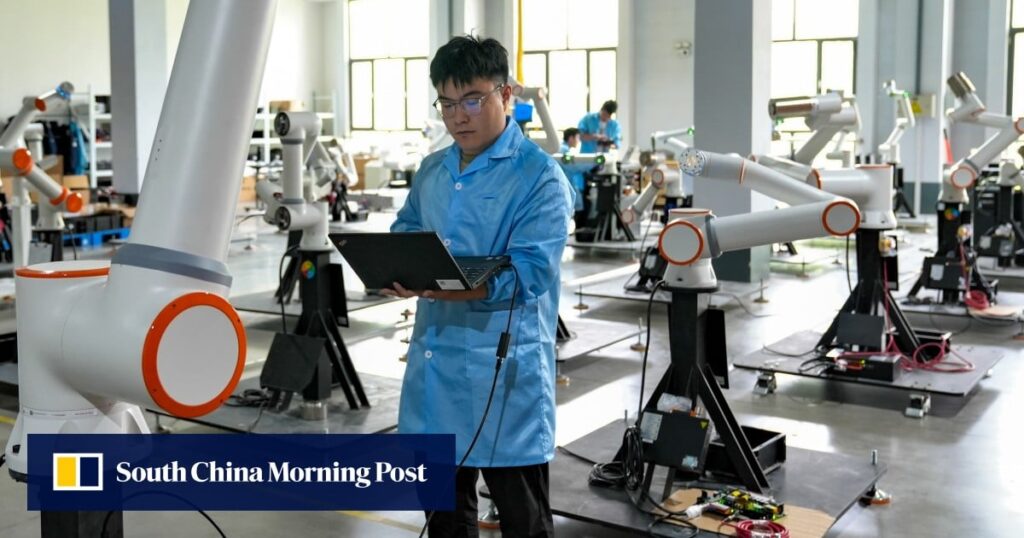With slowing economic growth and sluggish domestic demand, about 300 billion yuan ($41.3 billion) worth of ultra-long-term special bonds allocated to support industrial equipment upgrading and consumer goods trade-in programs will play a key role in stabilizing China’s economy in the second half of the year, analysts said.
Lu Jie, chief economist at Founder Securities, said China’s second-quarter economic growth of 4.7 percent put the leadership’s “aggressive” full-year growth target of around 5 percent at further risk, and the government issuance is part of stepped-up efforts to boost demand and spur growth.
“Assuming the 300 billion yuan fund can spur additional investment worth 300 billion to 900 billion yuan in the second half of this year, it could have a significant impact, boosting nominal economic growth rate in the second half by 0.4 to 1.3 percentage points,” Lu said in the report released on Friday.
China’s national planning authority and finance ministry said last week that about 148 billion yuan would be allocated to upgrading equipment in key areas and scrapping and upgrading old operating ships, as well as 150 billion yuan for updating old trucks, agricultural machinery, new energy buses and cars and for trading in home appliances.
An estimated 100 billion yuan will be allocated for trade-ins of consumer goods, according to a report published Sunday by GF Securities analyst Wang Dan. With subsidies for home appliances estimated at 15-20 percent and for passenger cars estimated at roughly 10-13 percent, the 100 billion yuan could boost consumption by 666.7 billion to 769.2 billion yuan.
Wang also said total retail sales and consumer spending as a share of GDP would both rise by about 1.4 to 1.6 percentage points.
“Assuming that the policy effects are fully realized and that consumer spending as a percentage of nominal GDP is 39.2% in 2023, the theoretical impact would be [of the 100-billion-yuan ultra-long-term bond] The impact on nominal growth will be about 0.6 percentage points,” Wang explained.
China is struggling with weak domestic demand, and growth in retail sales, fixed asset investment and real estate investment continues to disappoint.
The implementation of this policy will contribute to economic growth in the second half of the year.GF Securities
China is counting on industrial and capital upgrades and consumer goods to revive sluggish economic growth, but business and consumer confidence remains fragile and many people face uncertain employment prospects and the possibility of wage cuts or layoffs and are becoming increasingly cautious about spending their hard-earned money.
The People’s Bank of China cut several key interest rates last week and further policy easing is expected as the government strengthens its determination to shore up economic activity at home.
In addition, GF Securities’ report estimated that 200 billion yuan of the total 300 billion yuan of ultra-long-term bonds will be used to upgrade enterprises’ industrial equipment, stimulating investment of about 1 trillion to 2 trillion yuan and potentially increasing fixed asset investment by 2 to 4 percentage points.
“Given the dearth of local infrastructure projects and delayed special bond issuance in the first half of the year, investments in equipment upgrades and trade-ins should generate higher marginal returns,” the report said. “Implementation of this policy will lead to economic growth in the second half of the year.”

